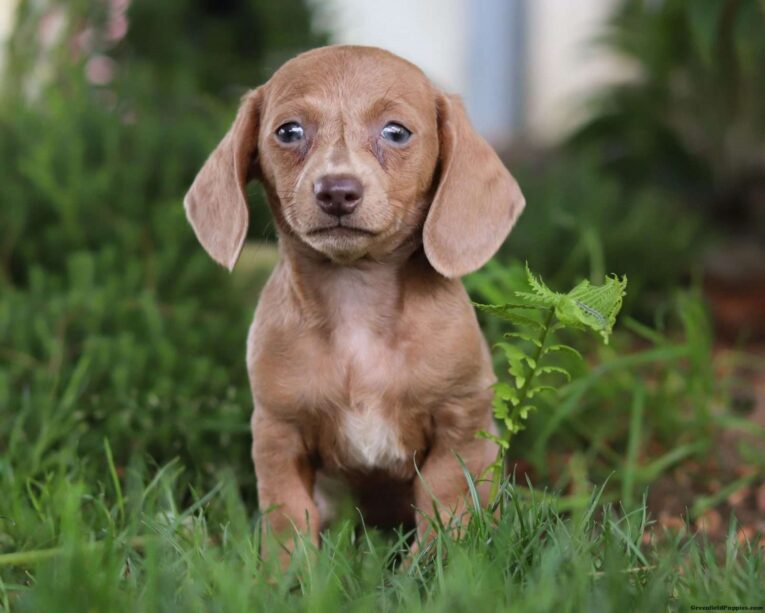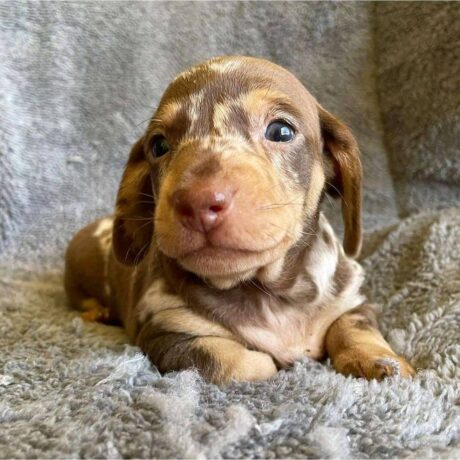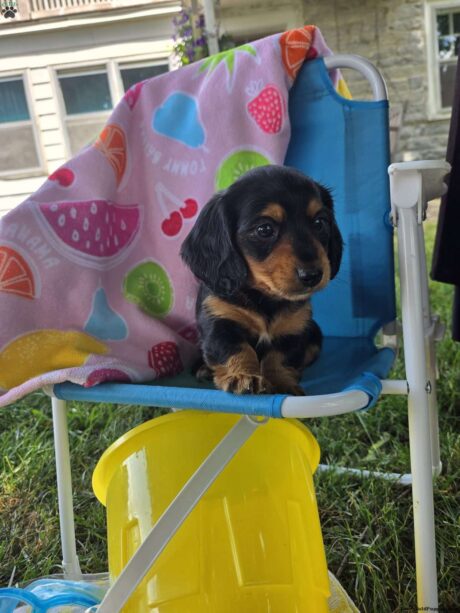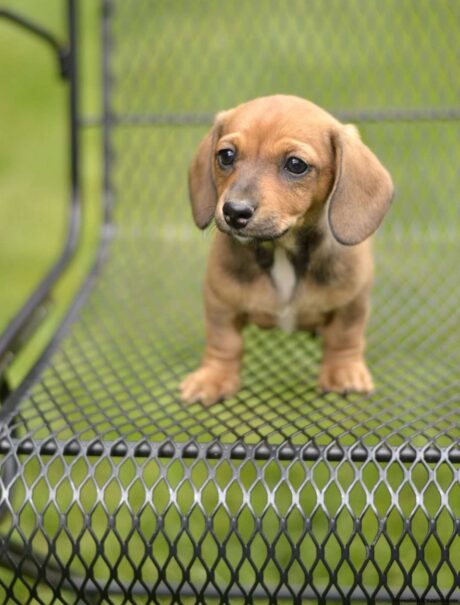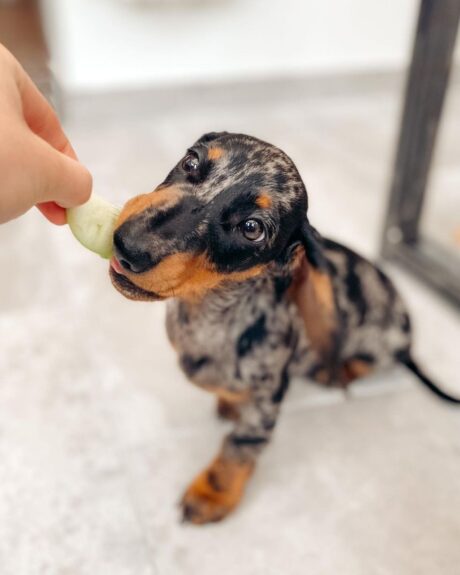The Ultimate Guide to Owning a Miniature Dachshund
Miniature Dachshund, with their unique appearance and spirited personality, have captured the hearts of many dog lovers worldwide. Their small stature and long bodies make them instantly recognizable, but there is much more to this breed than meets the eye. This comprehensive guide will explore everything you need to know about Miniature Dachshunds, from their history and characteristics to care tips and training advice.
History and Origin of Miniature Dachshund
Miniature Dachshunds, often affectionately referred to as “wiener dogs,” have a rich history that dates back several centuries. Originally bred in Germany, the name “Dachshund” translates to “badger dog,” reflecting their primary use in hunting badgers. Their long, narrow bodies allowed them to burrow into tunnels, chase out badgers, and other small game.
The breed was developed in the 16th century, and over time, two distinct sizes emerged: the standard and the miniature. Miniature Dachshunds were specifically bred to hunt smaller prey, such as rabbits. Today, they are cherished as loyal companions and are prevalent in homes worldwide famous.
Physical Characteristics and Appearance
Miniature Dachshunds are known for their distinctive shape, which includes a long body, short legs, and a prominent chest. They typically weigh between 8 and 11 pounds and stand about 5 to 6 inches tall at the shoulder. Their unique build is both charming and functional, allowing them to navigate through tight spaces.
Coat Types and Colors
Miniature Dachshunds come in three coat types: smooth, longhaired, and wirehaired. Each coat type has its appeal and requires different grooming practices:
- Smooth-coated Dachshunds have a short, shiny coat that is easy to maintain.
- Longhaired Dachshunds possess a sleek, flowing coat that requires regular brushing to prevent matting.
- Wirehaired Dachshunds feature a coarse, dense coat with a distinctive beard and eyebrows, needing regular trimming and grooming.
In terms of color, Miniature Dachshunds come in a wide variety, including red, cream, black and tan, chocolate, and dapple (a mix of light and dark patches).
Personality and Temperament
Miniature Dachshunds are known for their lively and spirited personalities. They are intelligent and curious and often exhibit a playful demeanor. Despite their small size, they are bold and courageous, sometimes appearing fearless.
Social Behavior
While Miniature Dachshunds are affectionate with their families, they can be wary of strangers. Early socialization is crucial to ensure they grow up to be well-rounded dogs. They often get along with other pets, primarily if raised together, but their hunting instincts sometimes prompt them to chase smaller animals.
Training and Intelligence
Training a Miniature Dachshund can be both rewarding and challenging. They are intelligent and quick learners but can also be stubborn and independent. Consistent, positive reinforcement techniques work best, and keeping training sessions short and engaging to hold their interest is essential.
Health and Lifespan
Miniature Dachshunds are generally healthy dogs, but like all breeds, they are prone to specific health issues. Understanding these potential problems can help owners proactively ensure their pets lead long, healthy lives.
Common Health Issues
- Intervertebral Disc Disease (IVDD): Due to their long backs, Miniature Dachshunds are susceptible to spinal issues. Preventive measures include avoiding activities that strain their spine, such as jumping from high places.
- Obesity: Their small size makes them prone to weight gain, which can exacerbate spinal problems and other health issues. A balanced diet and regular exercise are essential.
- Dental Issues: Regular dental care is critical, as Miniature Dachshunds are prone to dental problems. Brushing their teeth and providing dental treats can help maintain oral health.
Lifespan
With proper care, Miniature Dachshunds can live between 12 to 16 years. Regular veterinary check-ups, a nutritious diet, and an active lifestyle contribute significantly to their longevity.
Caring for Your Miniature Dachshund
Owning a Miniature Dachshund requires a commitment to their physical and emotional well-being. Here are some essential care tips:
Diet and Nutrition
It is crucial to feed your Miniature Dachshund a balanced diet. High-quality commercial dog food formulated for small breeds is a good choice, but monitoring their caloric intake is essential to prevent obesity. Treats should be given in moderation, and table scraps should be avoided.
Exercise Requirements
Despite their small size, Miniature Dachshunds are active and energetic. They enjoy daily walks and playtime. Interactive toys and games stimulating their mind and body can keep them entertained. However, it’s important to avoid activities that strain their spine excessively.
Grooming Needs
The grooming requirements for Miniature Dachshunds vary depending on their coat type. Smooth-coated Dachshunds need minimal grooming, while longhaired and wirehaired varieties require more regular attention. Regular brushing, bathing, and nail trimming are essential for all coat types.
Training Your Miniature Dachshund
Training a Miniature Dachshund requires patience and consistency. Here are some tips to help you succeed:
Housebreaking
Housebreaking a Miniature Dachshund can be challenging due to their stubborn nature. Crate training can be an effective method. Establish a routine and praise them for successful bathroom trips outside.
Basic Commands
Teaching basic commands such as sit, stay, and come is essential for their safety and your peace of mind. Use positive reinforcement techniques, including treats and praise, to encourage good behavior.
Addressing Behavioral Issues
Miniature Dachshunds can develop behavioral issues such as barking and digging. Providing plenty of mental and physical stimulation can help mitigate these problems. Consistent training and setting clear boundaries are crucial to managing their behavior.
Living with a Miniature Dachshund
Bringing a Miniature Dachshund into your home can be a joyful experience. Their affectionate nature and playful antics make them excellent companions. Here are some additional considerations for living with a Miniature Dachshund:
Suitable Living Arrangements
Miniature Dachshunds adapt well to various living environments, whether you live in an apartment or a house with a yard. However, they should always be supervised when outside to prevent them from digging or escaping through small gaps.
Traveling with Your Dachshund
Traveling with a Miniature Dachshund can be enjoyable if proper preparations are made. Ensure your dog is secure in a carrier or harness during car rides. If flying, check with the airline for their pet travel policies. Familiarize your dog with its travel crate beforehand to reduce stress.
Family and Children
Miniature Dachshunds can be great family pets, but they should be supervised around young children. Teaching children how to interact gently and respectfully with the dog is essential to prevent accidental harm.
Conclusion
Miniature Dachshunds are delightful, loyal, and full of character. With proper care, training, and attention, they make fantastic companions and bring joy to any household. Whether you are a first-time dog owner or an experienced pet parent, a Miniature Dachshund can enrich your life with their unique charm and unwavering loyalty.
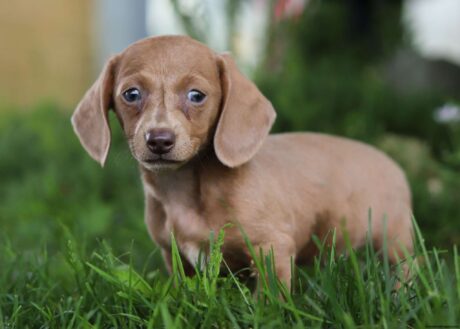
Female
Status: AVAILABLE
13 Weeks old
Dachshund puppy
Accepting deposits
AKC registered
Health guarantee
Current on all shots
Micro chipped
All paper work available
Kids Friendly
Other Pets Friendly
Shipping Available
Price Discounts When you buy more than one Puppy

